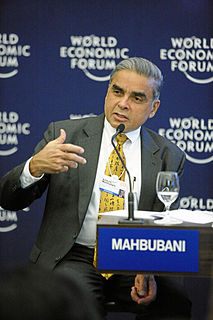A Quote by Li Keqiang
Many people in the world believe that in the 21st century, the Asia-Pacific - Asia in particular - will play a more important role in global economy and politics and that Asia will become an important engine for the world economy.
Related Quotes
The 21st century will be the Asian century. This also means that Asians will be expected to provide greater leadership to solve global challenges, including environmental challenges. Hence, this multi-disciplinary programme from NUS could not be more timely. It meets a pressing need to educate, train and empower leading players in the public, private and civil society sectors in Singapore, Asia and the world.
































